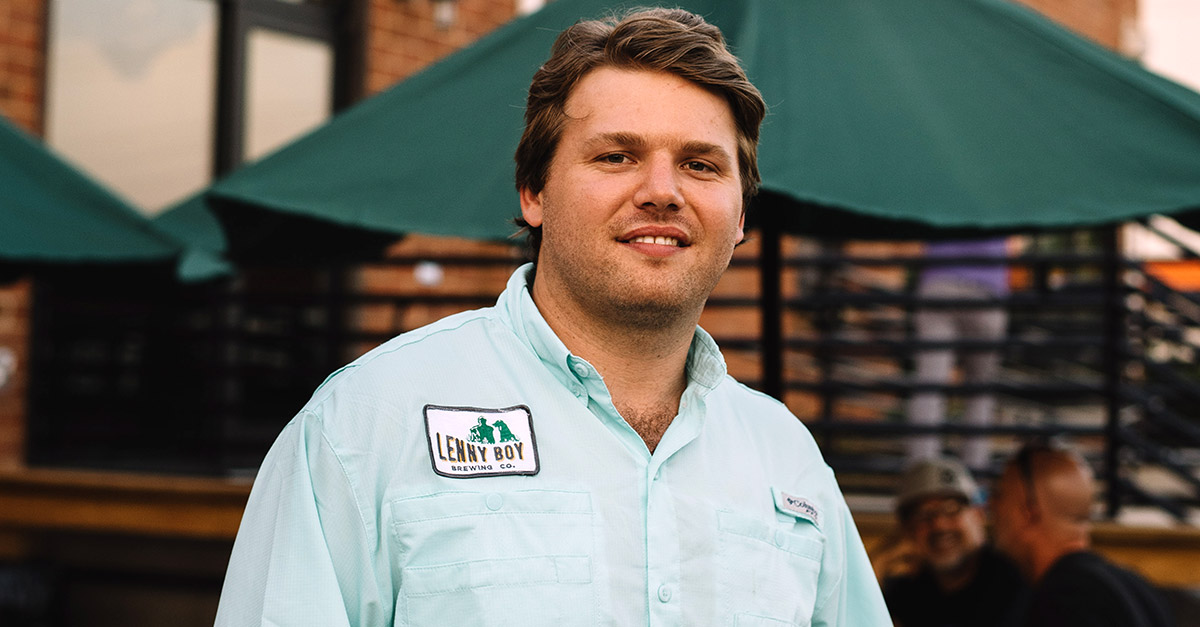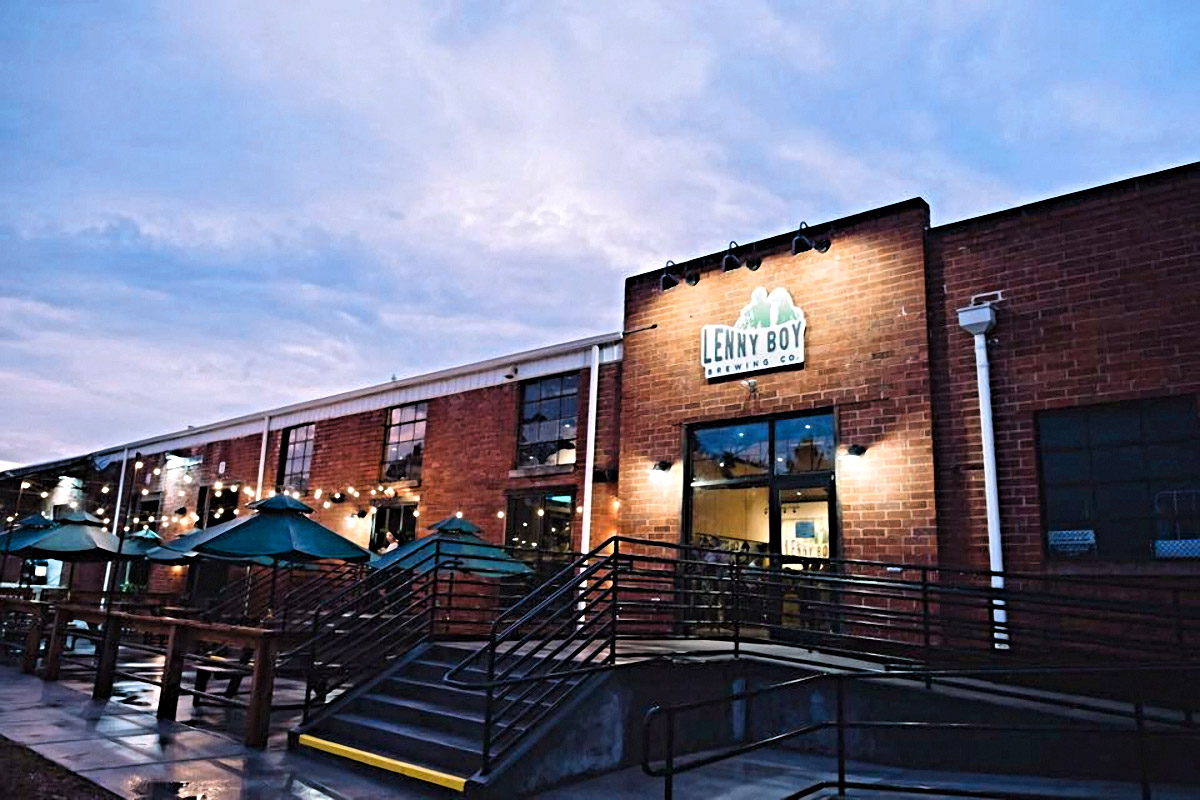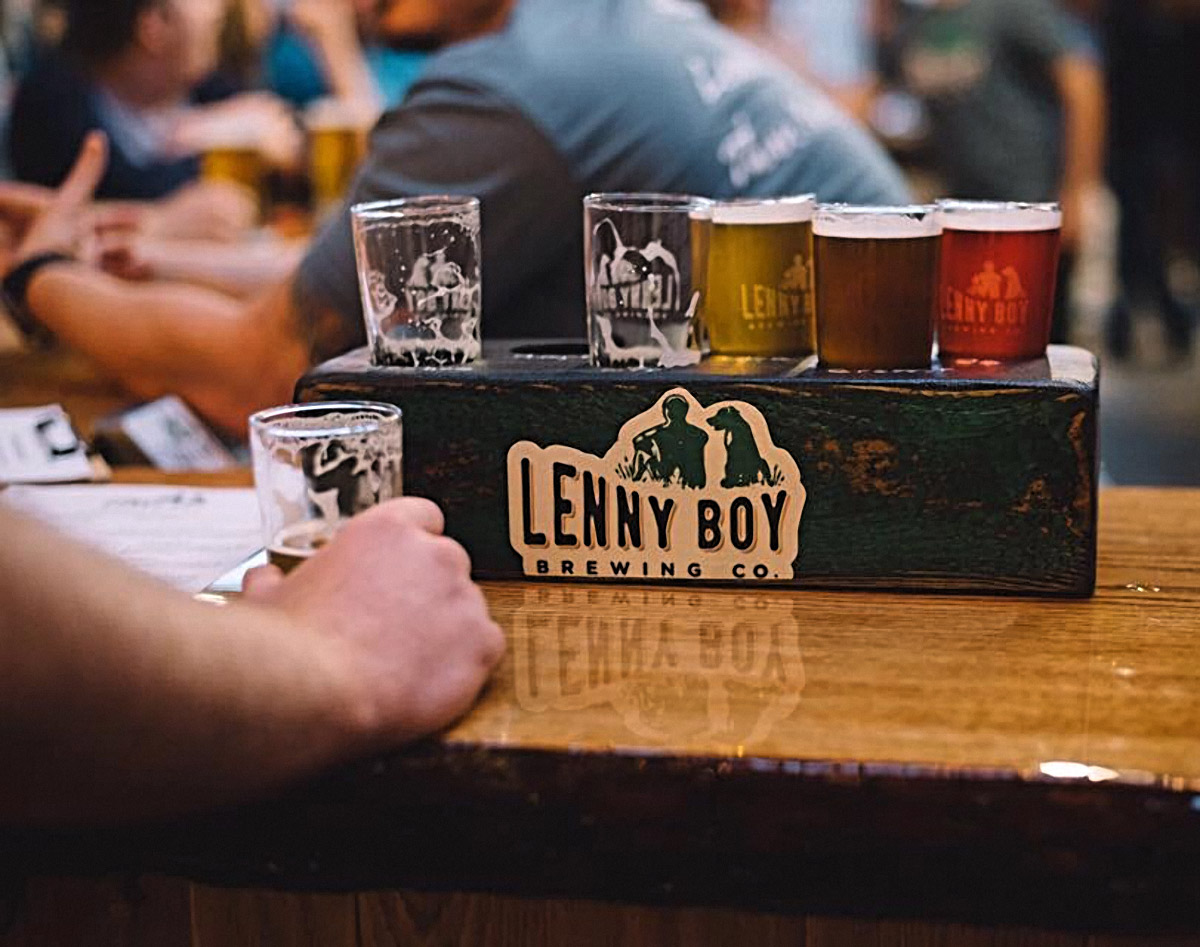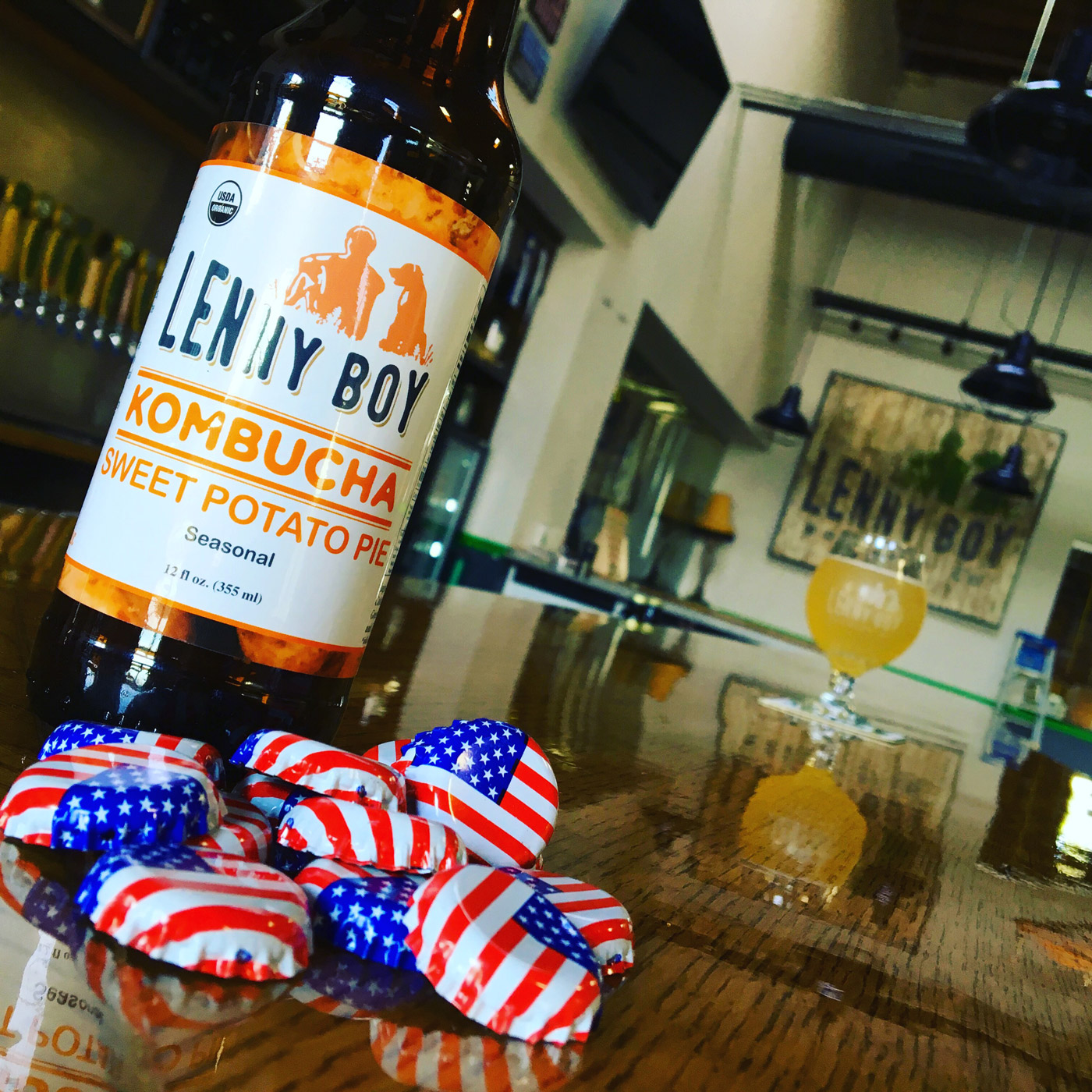Meet PCG Member – Townes Mozer – King of Kombucha

Townes Mozer has had a rough weekend. On this Monday afternoon in mid-September his usually forceful gaze is a bit hazy, his green eyes red-rimmed.

Inside the cavernous taproom of Lenny Boy’s new South Tryon location, the Charlotte native sits at the long shiny bar and rubs his stubbled face. He’s trying to recall specific dates from his career, emerging from pizza-chomping college student to the Queen City’s king of kombucha.
His weekend did involve large quantities of beer, but today the normally energetic owner of Lenny Boy Brewing is not the victim of a hangover. Instead, he’s the victim of success. The past two days saw the launch of the brewery’s huge new space, and the response was overwhelming.
“I was here from 10 am until 2:30 in the morning,” Mozer says gesturing toward a line of 29 new taps gleaming in the warm afternoon light. “I stood over there continuously, non-stop pouring beers for four hours and running beer expo. I still can’t feel my feet or my shoulders.”

In spite of the aches and pains, you won’t hear Mozer utter a word of complaint. His enthusiasm remains undimmed, re-emerging as he shows off the grand new facility. Behind the large taproom, vast windows look into the kombucha brewing area.
While little of the equipment is new, a larger waterline and some other efficiencies have already boosted the company’s capacity. “All the stuff that would take us six days to brew at the old spot, when we moved all the tanks over here to start production, we brewed everything in a day,” says Mozer.
Kombucha was his inspiration in entering the world of fermentation. In hindsight, it seems a natural fit for someone with a degree in business and environmental science, but it wasn’t until spring break of his junior year at UNC-Wilmington that friends in Oregon introduced Mozer to kombucha.
“With the first sip I literally had an aha! moment. Then I had another sip and I was like, ‘I already feel better somehow.’ From there it was just an obsession.”
Upon his return, he began experimenting with all kinds of fermentation, from kombucha and beer to kimchi and sauerkraut. But it was that first sip that pointed him toward his future. “Kombucha kind of woke me up to the whole farmers’ market thing,” he says. From the health benefits of fermented teas, he developed an interest in using local, organic ingredients … which explains why he started his brewing career by interning on a farm.
For most of 2011, Mozer worked the fields at Mountain Harvest Organics in Spring Creek, NC. From seeding to selling at local markets, he learned the full process behind growing organically. “[For me] the goal there at the farm was to learn the seasons, to then apply the seasons to the kombucha and beer.” He also made contact with an Asheville brewery that was willing to let him rent a single fermenting tank, which was where the first batch of Lenny Boy kombucha was born.
Mozer began that batch at the same time he started a corporate job in Charlotte, and for a year and a half he juggled them both. “On 15-minute breaks at work, I’d be calling a couple of accounts,” he recalls. The first bottle of brew sold in December 2011, and the next spring he found a warehouse location in South End to incubate the growing business.
Lenny Boy opened its Hawkins Street location in April of 2012, brewing about 400 gallons a month. Within three years that number had grown to 8,000 gallons, and Lenny Boy was ready to expand again. Not only did they need greater brewing capacity, but the small taproom restricted the offerings of an ever-growing catalogue of kombucha and beer.

“Before, we could only have a couple of our flagship [kombuchas] on [tap],” says Mozer. “Here we’ve got all our seven flagships, plus a one-off called Summer Melody; it’s a watermelon-muscadine blend.” He then goes on to list summer ingredients sourced from North Carolina farms: watermelon, muscadine, beets, sweet potatoes, blueberries, strawberries, even yerba mate brewed in Asheville. In addition, he says “Absolutely everything on this board is organic,” including the beers.
Lenny Boy linked up with the Piedmont Culinary Guild through its waste, supplying spent grains to Coldwater Creek Farm and Cackleberry Farms as animal feed. But Mozer has seen even greater benefits on the other side of the equation, making connections with chefs and bartenders who are interested in adding local brews to their taps. “It’s like-minded people doing real cool stuff in town, and really building the culture of Charlotte.”
Prior to its move, about three quarters of the brewery’s revenue was from wholesale accounts, and most of that was kombucha. The new space may well change that balance, but it also opens up other opportunities. Mozer plans on pursuing more collaborations with chefs, from dinners and classes with chefs like member Clark Barlowe, to this month’s fourth annual Carved festival. The open-air warehouse space has plenty of room for carvers, kids and all the demonstrations and activities that make up the popular event.
By now Mozer has recovered from that initial weekend of success, and is no doubt working on the next steps in growing the Lenny Boy empire. He even dreams long-term of going back to the first days of his kombucha dreams.
“The end goal for us is to get a farm,” he says, “and grow some of our own ingredients.”
While it may sound like an ambitious plan, Mozer has already proven he can achieve more than even he might have imagined.
Profile written by Alison Leininger
